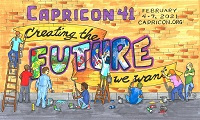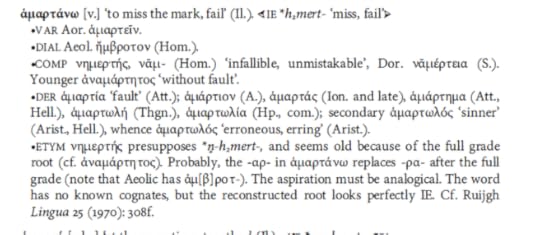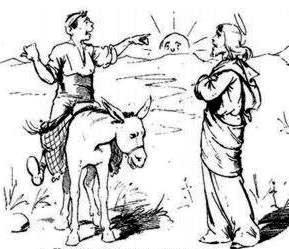Sue Burke's Blog, page 26
February 18, 2021
Extreme beliefs

As Charles Dickens wrote in A Tale of Two Cities: “It was the best of times, it was the worst of times, it was the age of wisdom, it was the age of foolishness, it was the epoch of belief, it was the epoch of incredulity, it was the season of light, it was the season of darkness, it was the spring of hope, it was the winter of despair.”
We’re doing it all over again, particularly that “epoch of belief” part. People are believing a whole lot of things. Why?
The world is a confusing place, and people want to make sense of it. As far as I can tell, some people are prone to believe the first explanation they find that seems to make sense — the very first explanation, and they stop right there, without asking if it’s a fully sensible.
It might be wiser to search for as many explanations as possible. If there are two or more sides to an issue, try to understand them all. Knowing multiple explanations might temper your belief. Can you accurately, even sympathetically, explain your opponents’ points of view? It’s easy to condemn what you do not understand.
As Mark Twain said, “If a cat sits on a hot stove, that cat won’t sit on a hot stove again. That cat won’t sit on a cold stove either.”
The cat doesn’t understand the whole situation and has an extreme belief about stoves.
***
My next novel, Immunity Index, goes on sale May 4.
February 11, 2021
Writing during a dumpster fire
 A 2020 Christmas ornament
A 2020 Christmas ornamentWriting requires concentration. The past year has not been easy for concentration. Pandemic and politics clamored in the background, if not in the same room, incessantly.
A lot of writers had trouble, and I was among them. Doomscrolling may be bad for you, but the quality and quantity of the doom was exceptional. Besides distractions, I was often a little depressed as well. The author John Scalzi reports that he found early January particularly hard. Yes, it was.
Still, I managed to plug along this past year and this past month at reasonable rates of production. There’s one reason: for me, writing is an escape.
I was living in Madrid, Spain, when on the morning of March 11, 2004, terrorist bombs on commuter trains killed 193 people and injured about 2000. Three of the bombs exploded at Atocha train station within blocks of my house. I heard them. Sirens began wailing before 8 a.m. and continued constantly until 5 p.m.
The only emotional peace I had that day was when I opened up a manuscript and began writing, and suddenly I was far away in the future on a distant planet, working on the novel that became Semiosis. For several hours, I was elsewhere, thankfully.
Writing has been my form of self-care on other occasions, too. Words on paper or a screen have been my comfort in a hospital emergency waiting room or when I should have been sleeping but the night was too dark.
For other people, it will be different, as it should be. Our world is enriched by the variety of our individual strengths and weaknesses. The pull that writing has on me may be a weakness, not a strength, but it is my refuge, and I’m glad to have it. Still, I prefer to write because I want to write, not because I want to flee.
Self-care can include rewarding and enjoyable work. It can also include eating well, living in a clean environment, having a hobby (mine is cooking), organizing and planning your days, journaling, walking and exercising, and even delegating tasks to others.
What do you do to take care of yourself?
***
My next novel, Immunity Index, goes on sale May 4.
January 28, 2021
How to find me at Capricon 41 in February

Capricon is a four-day science fiction convention held annually in the Chicagoland area since 1981. This year, its 41st iteration, will be held virtually with the theme “Creating the Future We Want.”
You can attend! Sign up and learn more here. Organizers ask you to pay at least $10 for the weekend, but if life hasn’t gone well lately, you can attend for free. I signed up for the premium level to help out, so be my guest.
Expect music, a dance, a cooking workshop, a game or two, an open mic, and parties, in addition to panels on all sorts of topics from silly to serious. Since the pandemic hit and life has moved online, science fiction conventions have steadily learned to use technology to create events that aren’t quite like being there in person but still might be the social highlight of your month.
I’m scheduled for four events:
Thursday, February 4, 6:00 to 6:30 p.m., reading. Science Fiction vs. Literary Fiction: Who’s in Control? I’ll read an essay that explores how and why the stories of science fiction tell an uncomfortable truth about what really matters.
Saturday, February 6, 5:00 to 6:00 p.m., panel. Information Please! Based on the 1930s radio quiz show, Information Please tries to stump a panel of experts with a wide variety of questions about science fiction and fantasy where the fun is listening to their discussions as much as seeing if you can figure out the answer first. Steven H Silver is moderating, and other panelists are Barbara Barnett, David Hirsch, and Gary K Wolfe.
Saturday, February 6, 7:00 to 8:00 p.m., panel. The Power of the Short Story. What makes the short story such a potent form? I will moderate. Panelists are Rowan Fixemer, Michael Haynes, Donna J.W. Munro, and Lucy A. Snyder.
Sunday, February 7, 1:00 to 2:00 p.m., panel. The Sapir Wharf Hypothesis and Dystopian Fiction. The Sapir Wharf Hypothesis proposes that the structure of language determines a native speaker’s perception and categorization of experience. Our panelists discuss how dystopian fiction uses the curtailing of language to curtail thought. Moderator is Isabel Schechter, and panelists are Geoff Strayer, Beverly Friend, and myself.
***
My next novel, Immunity Index, goes on sale May 4.
January 21, 2021
Goodreads review: “17776: What football will look like in the future”
 17776: What football will look like in the future by Jon Bois
17776: What football will look like in the future by Jon BoisMy rating: 5 of 5 stars
Strange and wonderful and fun to read — if “read” is the right word.
Three sentient space probes watch humanity, now immortal, pass the time by playing games that somewhat resemble football. In the process, the story considers the meaning of immortality, the effect of rules, and the creation of purpose in life, among other things — explored through multimedia that sometimes feels like found artifacts.
For the most part, this piece consists of world-building. And what a world! Football games that last millennia. Self-expression via buildings. The importance of minute exploration and observation. It’s told through revealing vignettes and occasional astonishing narratives. The tale about the lightbulb broke my heart. (No spoilers.) I understand sentient machines better now because of that story; they have their heros.
Juice, the rude and excitable space probe, showed an obvious but overlooked aspect of artificial intelligence: some of it might be much too human-like. I loved Juice anyway.
In many ways, 17776 was a daring experiment. It worked. You don’t need to like football to like it.
I think I’ll read it again.
View all my reviews
January 14, 2021
“El Cid,” the Cid-adjacent TV series from Spain

As you may know, I’m working on a historical novel about the life of Queen Urraca I of Castilla-León, who reigned from 1109 to 1126. (You can read Chapter 1 here.) Her father was Alfonso VI, and one of his knights, for a time, was Rodrigo Díaz de Vivar, also known as El Cid. I have a whole shelf of reference material about that particular moment in Spanish history.
What do I think of El Cid, the Spanish TV show on Amazon Prime about the epic of his life? Visually, way cool. Historically, a little shaky. Dramatically, risk-averse. Consider the first episode.
What’s true (spoiler alert):
Rodrigo’s maternal grandfather was a fairly powerful count.
Rodrigo arrived at the court of King Fernando I without much status and rose to become a knight for his son Sancho — and eventually, as an independent warlord, Rodrigo conquered Valencia.
He married Jimena, but more than ten years after Episode One. There’s no evidence they knew each other beforehand, and since she was of quite royal blood, their paths might not have crossed much.
What’s not true:
Jousts of the type shown in the episode were not practiced in the 11th century in Spain or anywhere else.
Fireplaces had not come into use in Europe. Also, León had a public bath, so there was no need to bathe in a tub in the castle. The royal family had a manorial home in León, not a castle. And the castles of the time in Spain weren’t as big and nice as they seem to be in the show.
Royal clothing was far more sumptuous than we generally imagine. Alfonso VI had a tunic made out of spun gold! That’s all I’ll say about the costuming, but I could go on. And on.
The King’s daughter Urraca (aunt of Queen Urraca I) was famously strong-willed, but not for the cheap sexy way she’s depicted on the show.
Rodrigo’s father is not known to have fought in the Battle of Atapuerca or anywhere else; nothing much is known about his father. But anyone who played a key role in that well-chronicled battle would likely have been remembered.
At the same time that King Fernando was getting some nice tribute money from the Muslim taifas, he also carried out a vigorous and successful campaign of conquest. Not for nothing was he called “the Great.” In fact, he earned the title of emperor. The nobles of León were always restive for various reasons, some of them reasonable, but they likely had no complaints about his policies on tributes (parias) and conquest, since he managed plenty of both. There’s no record of a revolt or assassination attempt by the nobles — or by his wife.
Finally, it is unforgivably TV stupid for a potential assassin of the King to be able to climb up the scaffolding beneath the royal bleachers, have a big, long, athletic fight with Rodrigo, get killed — and no one notices! All sorts of people would have been roaming around behind the bleachers doing whatnot, and at least one of them would have been a guard.
My verdict:
It’s fun to watch, but don’t believe everything you see. This is TV, not history. I believe that’s truly sad because the real history is enthralling. The show’s writers have sold their souls to tired melodramatic tropes. It seems they cannot understand, much less appreciate, the depth and breadth of the actual drama of the time, questions of statecraft, honor, and purpose. It was so much bigger and better than petty pointless personal vendettas.
***
My next novel, Immunity Index, goes on sale May 4.
January 7, 2021
“I get all the news I need from the weather report”

I remember a song from when I was in high school. Or rather, I remember a line from that song: “I get all the news I need from the weather report.” In the song, those words had a wistful meaning. Out of context, they stuck with me over the years as the perfect expression of a carefree day.
It’s from the song “The Only Living Boy in New York” by Paul Simon. Enjoy it here.
Sometimes, especially lately, I think of that line and I wish that for just one day it could be true.
***
Regarding yesterday, I recommend this interview by NPR’s Noel King, who talks to Eddie Glaude, chair of Princeton University’s department of African American Studies, about the responses to the assault on the US Capitol and to racial justice protests.
December 31, 2020
Word(s) of the year 2020

For the Collins Dictionary, the Word of the Year for 2020 is lockdown: “The restrictions placed on how we move about and interact with one another arguably had the most impact.”
Shortlisted for the honor are: coronavirus, BLM (Black Lives Matter), key worker, furlough, self-isolate, social distancing, MEGxit (the withdrawal of the Duke and Duchess of Sussex from royal duties), Tiktoker, and mukbang (“a video or webcast in which the host eats a large quantity of food for the entertainment of viewers). Obviously, this list tilts toward British English.
On the American side of the Pond, Merriam-Webster.com chose pandemic, based on “a statistical analysis of words that are looked up in extremely high numbers in our online dictionary while also showing a significant year-over-year increase in traffic.”
Other top 2020 lookups are: coronavirus, defund, mamba (Kobe Bryant’s nickname was “Black Mamba”), kraken (the name for Seattle’s new hockey team), quarantine, antebellum (a trio of singers ditched “Lady Antebellum” for “Lady A”), schaudenfreude, asymptomatic, irregardless (not a newly accepted word by M-W, despite rumors to the contrary), icon (Ruth Bader Ginsburg), and malarkey (Joe Biden likes that word).
By the way, the M-W word of the year last year, 2019, was they as a gender-neutral singular pronoun.
Oxford Languages couldn’t make up its mind. “As our Word of the Year process started and this data was opened up, it quickly became apparent that 2020 is not a year that could neatly be accommodated in one single ‘word of the year,’ so we have decided to report more expansively on the phenomenal breadth of language change and development over the year in our ‘Words of an Unprecedented Year’ report.”
You can get Oxford’s report here. It’s 38 pages long and includes: brushfire (in Australia), impeachment, acquittal, coronavirus, Covid-19, lockdown, social distancing, reopening, Black Lives Matter, cancel culture, BIPOC, mail-in, Belarusian, moonshot (for covid testing), superspreader, and net zero (carbon neutral) — along with many other words like unmute. The report is sort of a brief, nicely illustrated history of 2020 in the English language.
Since I speak Spanish, I’m always interested in the annual choice of Spain’s FundéuRAE (Spanish Royal Academy Foundation). This year it’s confinamiento (lockdown or stay-at-home order). “La crisis sanitaria derivada de la pandemia de la COVID-19 es, sin duda, la protagonista del 2020 y las medidas implementadas para frenarla han cambiado radicalmente nuestra forma de vivir y de hablar.” (The health crisis caused by the COVID-19 pandemic has, without a doubt, played the leading role in 2020, and the measures taken to stop it have radically changed our way of living and speaking.)
Other candidates are: coronavirus, infodemia (infodemic), resiliencia (resilience), COVID-19, teletrabajo (telecommuting), conspiranoia (conspiracy theory), tiktok, estatuafobia (rejection of statues), pandemia, santarios (health care workers), and vacuna (vaccine).
Beyond lexicography, Politifact chose its lie of the year: coronavirus downplay and denial. “Lies infected America in 2020. The very worst were not just damaging, but deadly.”
Time Magazine selected its person(s) of the year: Joe Biden and Kamala Harris for “changing the American story, for showing that the forces of empathy are greater than the furies of division, for sharing a vision of healing in a grieving world.”
I see something of a pattern. A lot happened in 2020, but one thing touched us all and left behind a trail of pain and sorrow. This has been one of the worst years of my life, and I got out relatively unscathed. For others it has meant nothing but disaster after disaster. I’m desperately looking forward to 2021. Let’s hope it’s better for all of us.
P.S. I’m still making sourdough bread.
December 24, 2020
Tragic flaws or mere mistakes?
The oldest surviving work of literary theory that we have is Aristotle’s Poetics. Even if you’ve never heard of it, if you write fiction, you’ve heard its lessons. In particular, you may have heard that your protagonist should have a flaw, and this flaw is key to the plot

Or maybe you’ve heard wrong. This post at the Sententiae Antiquae blog, No, Virginia…There is No Tragic Flaw, takes exception to that assertion on the grounds that “flaw” is a misinterpretation of the original Greek word hamartia, which means “mistake.” The post goes on to say that the idea of a flawed character comes from the Christian doctrine in which we are all flawed by original sin, while the Greek word refers to “a mistake that is not connected to an essential character goodness or badness.”
Even if the Christian idea might apply, the post says, “this is not the Aristotelian context and this is not what Aristotle had in mind.” (Sententiae Antiquae’s authors can be delightful pendants.)
In fact, the meaning of hamartia has been debated for a while, and I think it’s good to bear in mind those competing definitions while writing. Amid the plethora of competing literary theories about all aspects of fiction, I contend that one truth remains: If writing is a sort of test, it’s a test with an enormous variety of right answers. Does the protagonist possess a sinful flaw, or merely make a mistake, believe a lie, lack key knowledge, or attempt the wrong thing? Each answer suggests a different story. I hope all the stories get written and read.
Aristotle goes on in Poetics to discuss characters in a literary work. “The character will be good if the purpose is good. Goodness is possible in every class of persons. Even a woman may be good, and a slave, though the former is liable to be an inferior being, and the latter quite worthless.” To which I can only harrumph in the noisiest way possible. A mistake has been made here indeed, and it is deeply tragic. Sinful, even?
December 17, 2020
To Zaragoza or to the puddle: an old Spanish story
 Cartoon from Madrid Cómico in 1885.
Cartoon from Madrid Cómico in 1885.This is a translation of an old story from Spain, specifically from Aragón, a region whose main city is Zaragoza. As I began work on the translation, I ran into a problem: the story is about a baturro. How should I translate that?
Literally, at least today, it means “a rustic from Aragón” according to the Royal Spanish Academy. The story is older, though, and back then, the word meant a little bit more, according to the Great Aragón Encyclopedia. A baturro would not merely be rustic but a little foolish and not very intelligent. More than that, a baturro would embody the stereotypical virtues and defects of the people of Aragón, above all pigheaded stubbornness and no small amount of pride and independence.
How could I embody all that in English? Bumpkin, redneck, hayseed, hick, yokel? The roots for some of these words are too deep in United States culture. How about provincial? Merriam-Webster’s definition includes the ideas of “limited outlook” and “unsophisticated.” That might have to do, with an added adjective or two.
The story, then:
***
One day Saint Peter grew bored. He hadn’t needed to open the Heavenly gates for some time, so he asked God to return him to the world to see what was happening down there. “No mortal has come to see us in many long years,” he said. [Translator’s note: Maybe they were all headed the other way.] With His divine blessing, Saint Peter jumped down to Earth. He had barely arrived, traveling on the road to Zaragoza, when he met a local provincial rustic and asked him where he was going.
“To Zaragoza,” he said.
“God willing,” the saint replied.
But, filled with the typical stubborn pride of the Aragón people, the rustic insisted, “Whether He wills it or not, I’m going to Zaragoza.”
The Fisher of Men, unhappy with the answer, used his God-given powers and turned the rustic into a frog. Then he tossed him into a nearby puddle. There he spent several years suffering during bad weather, dodging stones thrown by children, and enduring a thousand other calamities.
When Saint Peter had finished his mission and was ready to return to Heaven, he revisited the road to Zaragoza, restored the rustic to his human form, and asked him again where he was going.
“You already know. Zaragaza,” he said, even more determined than the first time.
“God willing, my friend, God willing,” the saint said sweetly.
“Not by God nor by [the original tale redacts the word] prayers. I have already told you: to Zaragoza or to the puddle!”
And so, the Apostle, seeing how impossible it was to bend the man’s will, let him continue peacefully on his way.
***
This is why, if you visit Zaragoza, you might see a few little frog statues in the city.
December 10, 2020
Goodreads review: “We Who Are About To…” by Joanna Russ
 We Who Are About To… by Joanna Russ
We Who Are About To… by Joanna RussMy rating: 3 of 5 stars
A spaceship goes off-course and crashes, leaving a handful of survivors, and all but one of them are determined to survive. That one, the narrator, knows they’re all about to die. She’s shrewd, perceptive, and has a lively voice, but she is also unstable, impulsive, and unreliable.
The first half of the novel recounts her interactions with the others, and it does so stylishly and well. The second half is her stream-of-conscious reflections and ramblings about the life she is about to lose. In the introduction, Samuel R. Delany calls the second half the best part, and some other readers agree, but I’m on the side of those who thought it was a bit too New Wave. It adds to the story, but only a little, and it goes on for far too long.
I treasure other works by Joanna Russ. This one is genius in the first half, but the second half doesn’t work for me. I’m glad I read it, but if I ever re-read it, I’ll only read the first part.
View all my reviews



